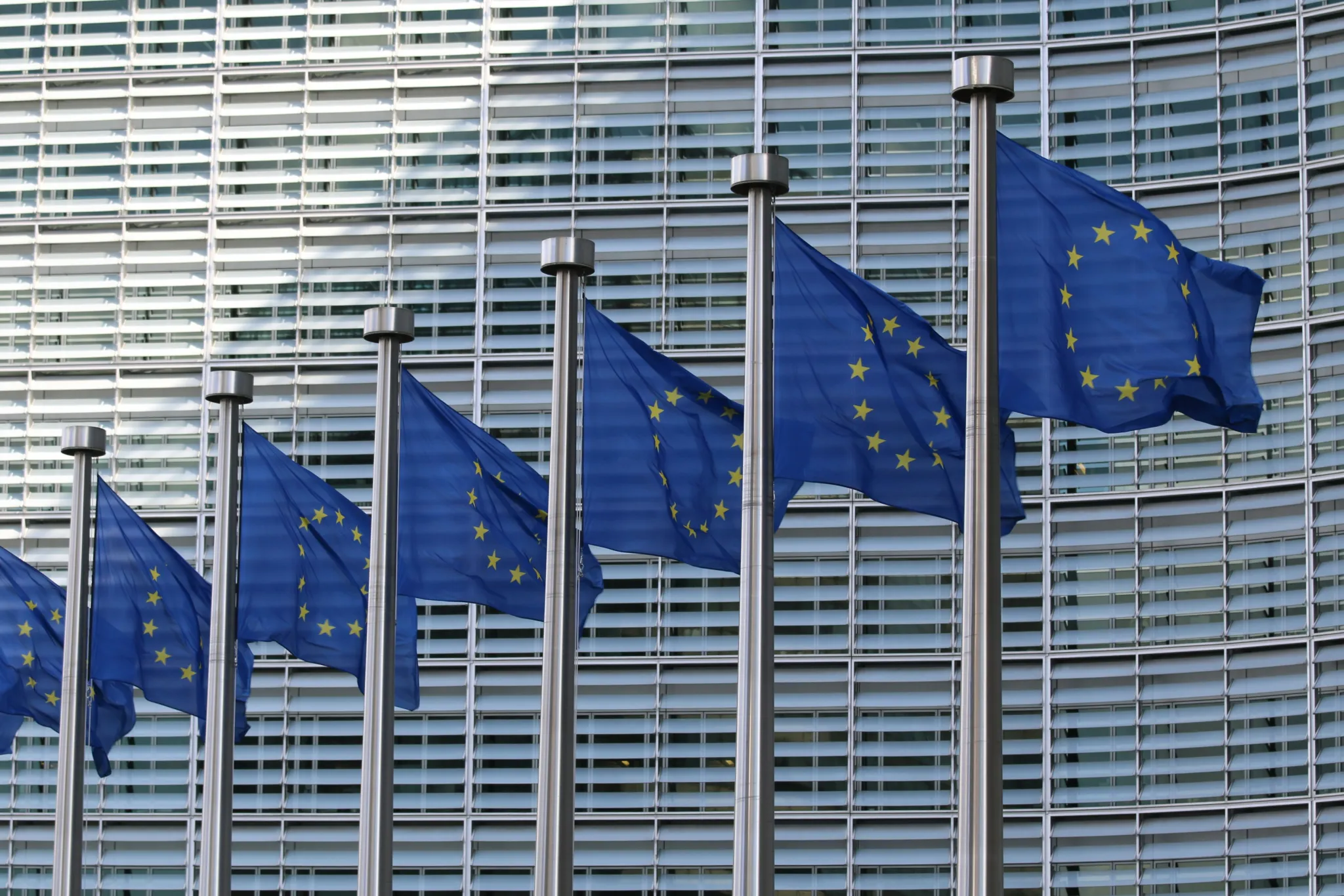Von der Leyen should make democracy the cornerstone of the EU’s security agenda

This article was first published as a guest contribution in Friends of Europe's 'Critical Thinking' Online Policy Magazine
By Sam van der Staak, Director for Europe at the International Institute for Democracy and Electoral Assistance (IDEA)
Von der Leyen has a unique opportunity to present her European Democracy Shield as the cornerstone of her security agenda. She should do so both at home and on the global stage. Her announced White Paper on the Future of European Defence is the place to do so.
European Commission President Von der Leyen’s European ‘Democracy Shield’ has been one of her few new policy announcements of her re-election campaign. On the campaign trail in Denmark this Spring, the Commission President mentioned that her initiative would bolster the EU’s capabilities to fight foreign influence. She announced greater efforts to counter foreign disinformation, cyber-attacks and external funding by building societal resilience and better enforcement of digital rules.
The choice for a security-inspired name for her democracy plans, Democracy Shield, fits neatly with the EU’s other big aim, which is to invest in a stronger European defence agenda. Like NATO, whose founding treaty calls to uphold democracy, individual liberty and the rule of law through military means, the EU is tying both issues firmly together. And rightly so. With Russia’s aggression in Ukraine, mounting tensions with China and an uncertain outcome of the US elections, democratic erosion has become the defining factor for the rise in global insecurity.
However, for her Democracy Shield to work in an increasingly autocratic world, the EU’s remit must go beyond a sole focus on protecting European democracies. The ability of European democracy to thrive unhindered is largely dependent on how its neighbourhood and the rest of the world embrace similar values. Indeed, since the times of Immanuel Kant, democratic peace theory has argued that electoral democracies do not fight wars with each other.
Von der Leyen should therefore adopt the triple aim of defending democracy at home, in the European neighbourhood, and among its global democratic partners. The White Paper on the Future of European Defence, which she announced to release 100 days into her second term, is where she should first articulate this triple-layered Democracy Shield.
At home, the Commission President has her work cut out. Last December, Von der Leyen launched her Defence of Democracy package. While most attention went to the legislation to curb foreign funding to European NGOs, the real blueprint for her second term sat in the recommendations on electoral resilience and promoting citizen engagement. These carried proposals for more inclusive participation, election integrity, election observation and fighting foreign funding.
Through these recommendations, the EU is further shaping its role as a Europe-wide electoral standard setter. The Commission increasingly realises that democratic backsliding in countries such as Hungary and Slovakia stems not only from the dismantling of the rule of law, but also from weak electoral integrity. Capable and independent electoral bodies, well-defined political finance rules, enhanced electoral observation and greater plurality of campaign media can prevent ill-intended leaders from capturing electoral processes.
The second layer of the EU’s Democracy Shield would focus on the EU’s neighbourhood, much of which faces direct or covert threats from Russia and its allies. Like NATO’s defence partnerships with associated countries, the Commission could step up its support to defending the political systems of enlargement countries. Fighting cyberattacks in election campaigns, combatting disinformation, banning foreign funding and strengthening electoral observation is the surest way to protect its immediate neighbours from external threats to their democracies.
Under the leadership of Kaja Kallas, the EU’s new and clear-eyed foreign policy chief, and the EU’s incoming Enlargement Commissioner, the EU can present an ambitious defence of democracy package for accession countries. Should a Trump victory in November reduce US support to the region, the bloc’s democratic leadership in Eastern Europe will become even more essential.
Under the Democracy Shield’s third layer, the EU should continue its support to strengthening democracy in the Global South. It especially stands a chance in weak democracies and hybrid regimes, where citizens are calling for greater government accountability. Just this summer, youth revolted against unjustified tax rises in Kenya, and ousted a long-term autocrat over labour discrimination in Bangladesh. Such openings help the EU to advance democracy through the force of citizens, fostering a more like-minded world that embraces the same universal values.
In this external tranche of the Democracy Shield, the EU should again tie issues of democracy and security more closely together. An increasing number of African youth worryingly couple support to democratic values such as accountability and transparency to support for military rule. Instead of pandering to military strongmen, as Russia and China do, EU support to defending elections can show that securing democracy lies in the hands of citizens and not soldiers. The hangover of the expulsion of European forces in the Sahel should not be seen as a deterrent, but a lesson in how to manage security by engaging directly with citizens dissatisfied with decades of unaccountable political elites.
Lastly, this Global tranche of the Democracy Shield should prioritise like-minded partners in the Global South that share the EU’s security priorities. The EU could for instance link its democracy support more strongly to those who signed the Ukraine Peace Plan, such as Ghana, the Philippines and Guatemala. After all, they share the EU’s views on how universal democratic values are linked to global security and should hence receive the benefits of better protection of their democracies.
Von der Leyen’s paper on the Future of European Defence document would be strongest if, like NATO’s founding treaty, it makes democracy the cornerstone of its security policy. But to protect democracy at home, the EU needs to fight an increasingly autocratic world not just internally, but also in its neighbourhood and globally. The European Democracy Shield is an opportunity to put these triple ambitions into action.




